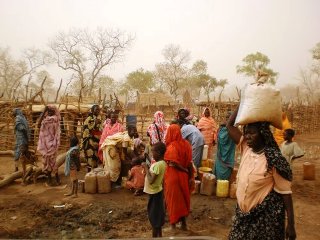S. Sudan registers low arrivals of Sudanese refugees: UN
September 6, 2013 (JUBA) – The number of new refugees arriving into South Sudan from Sudan has significantly lowered than expected in the second quarter of the year, the United Nations said.

“As the refugee operation stabilized, the humanitarian community focused on improving the living conditions of the more than 118,000 refugees living in Upper Nile State and the 74,000 refugees in Unity state”, the UNOCHA said.
After war broke out in Sudan’s South Kordofan in June 2011, several people fled southwards for safety. Two years later, however, 74,000 refugees are reportedly being hosted in South Sudan’s Unity state, where assistance is being provided.
At least 70,000 of these refugees, it says, live in South Sudan’s largest refugee settlement, Yida. However, due to the insecurity of the site and its proximity to the Sudanese border, protection partners have reportedly established an alternative site to host the displaced communities.
“People are slowly relocating to the new location. Overcrowding at the Yida settlement has also made maintaining health and hygiene standards challenging,” it noted, citing last year’s outbreak of hepatitis E, which killed13.
“While the disease is now under control, health workers remain vigilant and health promotion activities continue,” the agency assured.
ACCESS CHALLENGES
Meanwhile, the UN said a range of access constraints, including active hostilities, violence against personnel, assets and facilities and bureaucratic impediments, have negatively impacted on its humanitarian operations in South Sudan.
Between January and June, for instance, 129 access incidents were reportedly recorded, compared with 75 incidents for the same period last year.
Upper Nile state, according to the UN, was the worst affected with 32 incidents during the period, followed by Jonglei and Central Equatoria states.
“Upper Nile and Jonglei have large-scale humanitarian operations, increasing exposure of humanitarian personnel to violence, arbitrary taxation and other constraints”, partly reads the May-August update.
In Central Equatoria, incidents are often related to restrictions on entry of aid workers and goods into South Sudan, affecting operations country-wide, it stressed.
(ST)
